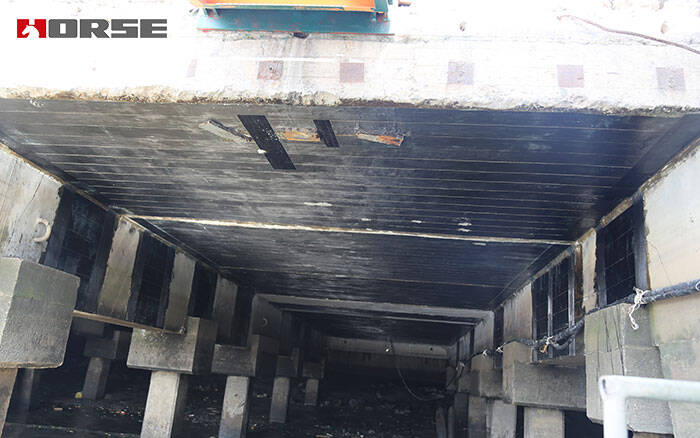Bridge and tunnel strengthening
FRP materials
Traditional engineering construction usually consists of concrete structure, steel structure and other materials. Although the advantages of these structures are very prominent, there is still a problem of premature structural degradation caused by material corrosion in practice. The wide application of FRP materials is a very effective way.

1.1 Bridge structure reinforcement and retrofitting
In some bridge structural renovation projects, the use of FRP material is not only convenient for construction, but also has obvious improvement effect on bridge bearing capacity, and has strong corrosion resistance. Usually FRP or FRP sheets are used to reinforce bridges, which can be flexural to improve the strength of bridges. In the process of maintenance and reinforcement of steel bridges, attention should be paid to the electric reaction of steel and carbon in the structure, so corresponding preventive measures should be taken. And when choosing FRP material, we should notice that its elastic modulus is consistent with the design requirements.
1.2 Instead of ordinary reinforcement
In some corrosive environments, FRP can be used to replace ordinary reinforcement bars as reinforcement bars to improve the corrosion resistance of the structure. For example, reinforced concrete beam or bridge deck can be used FRP reinforcement as main reinforcement. In practical application, the bond between FRP and concrete is the key point of FRP concrete structure. In order to improve the bond strength between FRP and concrete, special deformation or roughening treatment is usually required on the surface of FRP during pultrusion. The processing methods include indentation, sand bonding or filament winding to form threads. Specifically, the main factors affecting the bond performance between FRP and concrete include the surface deformation form of FRP, the thickness of concrete protective layer, the strength of concrete, and the diameter and buried length of FRP members.
1.3 Prestressed tendons for prestressed concrete structures
Prestressing on FRP can not only give full play to the material properties of FRP, but also effectively improve the crack resistance and stiffness of FRP concrete beams. In practice, there are two kinds of prestressed beams and bars in vivo and in vitro. If the section of concrete structure is not easy to arrange too many prestressed bars in vivo, or if FRP bars are needed to reinforce, external prestressing technology can be used. But in practice, the application of prestressed tendons is still the main application.
1.4. Force element applied to cable supported bridge
The main cables, stayed cables and suspenders of some cable-supported bridges are usually located outside the girder. This kind of structure is in a high stress state for a long time, so stress corrosion will occur. The durability of the cable can be improved in a short period of time by using traditional measures, but the symptoms will not be cured. FRP materials, because of its good durability and fatigue resistance, can be fundamentally solved. In addition, because of the high strength of FRP material, it can be used in the main cable or cable of cable-supported bridge, which can also effectively improve the bearing efficiency and span capacity of the bridge.

In tunnel engineering, the application of FRP is mainly in the following aspects:
First of all, FRP grids, FRP grids not only have strong durability, but also light weight, high strength, so easy to construction and good effect. FRP grille has been widely used in tunnel reinforcement engineering and new structure. It can play a better role in controlling surrounding rock deformation when it is combined with anchor.
Secondly, FRP is used as the stress bar of tunnel structure. In tunnel engineering, no matter which design method is adopted, the main structure of the tunnel will inevitably be in the surrounding rock with very bad environmental conditions, and corrosive problems are also very prominent. In view of this situation, if FRP material is used as the main structural reinforcement, because of its good corrosion resistance, it can better solve the problem. However, there are also some problems, because the elastic modulus of FRP is not high, so FRP concrete members can exist deformation or crack problem. And it is impossible to make FRP hook or molding in the construction site, so the construction process is relatively inconvenient.
Finally, the application of FRP sensing performance, FRP not only has good mechanical properties, but also has the corresponding functional material sensing performance, so it can be used not only for the structural reinforcement, but also as a sensor. For example, during the process of force deformation, the resistance of CFRP bar will change, which reflects its perceptual characteristics. If this characteristic of FRP material is fully utilized in tunnel structure function detection and monitoring, not only the actual stress of the structure can be accurately reflected, but also the inconvenience of artificial control in the later period can be avoided.